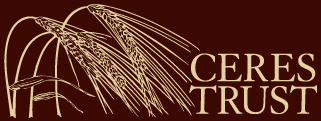Transforming waste: rearing black soldier flies as a source of compost and entomopathogenic nematodes
The Ceres Trust 2013 Graduate Student Organic Research Grant Final Report
Project Leader: Joseph S. Tourtois, Graduate Student, Michigan State University, Department of Entomology Major
Advisor: Dr. Matthew J. Grieshop, Michigan State University, Department of Entomology
View/Download Full Report in PDF Format
Objectives
- Determine black soldier fly composting rate and quality for plant and animal based farm waste and the number and quality of larvae produced on these substrates.
- Develop an optimized entomopathogenic nematode rearing system based on black soldier fly larvae.
Conclusions
Black soldier flies can be used to compost various sources of organic matter, except tough plant structures that contain cellulose. They quickly break down organic matter and greatly reduce the amount of biomass with a few short weeks. Black soldier fly compost is safe to use as soil amendment when diluted, but be careful about the presence of any seeds. We think that after black soldier flies have finished feeding, red worms could be added to finish breaking down the compost into a more stable state. Black soldier fly larvae are not readily susceptible to infection by entomopathogenic nematodes. Injuring them does increase their susceptibility to Steinernema spp. but not H. bacteriophora.
